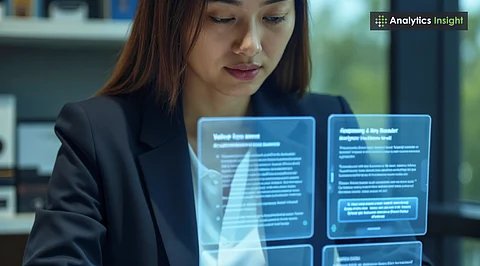Artificial intelligence is reshaping the landscape of job interview preparation in 2025. Tools such as Interview Sidekick and Yoodli are now available to help candidates enhance their interview skills, providing realistic mock interviews and feedback on speech delivery. As job seekers face increasingly competitive environments, leveraging these advanced AI platforms can significantly improve their chances of securing employment.
Using AI for interview preparation offers numerous advantages. Candidates can practice answering tough questions that are tailored to specific job roles. For instance, AI tools can generate questions based on the job description, allowing candidates to focus their efforts on relevant skills. This targeted approach helps reduce anxiety and builds confidence before the actual interview.
Key Features of AI Interview Preparation Tools
AI tools streamline the research process, providing candidates with quick access to vital company information. By simply inputting the company name, candidates can gather insights about its culture, recent projects, and industry trends. This knowledge equips them to engage more meaningfully during interviews and demonstrate a genuine interest in the organization.
Among the most notable tools available in 2025 are:
– Google’s Interview Warmup: This free resource offers practice questions and feedback, making it ideal for newcomers across various sectors.
– Yoodli: This platform records practice sessions and evaluates aspects like tone and pacing, helping candidates refine their speaking skills.
– Final Round AI: Designed for both technical and office roles, this tool offers practical interview simulations and helpful improvement tips.
Candidates can maximize their preparation by integrating AI tools into their routines. For example, spending just 10 to 15 minutes daily on practice sessions can lead to substantial improvements over time.
Strategies for Effective Interview Preparation
To make the most of AI resources, candidates should focus on a few key strategies. Understanding the job is essential; candidates can paste the job description into an AI chatbot to identify the most critical skills to emphasize. Additionally, practicing mock interviews on platforms like Skillora or Interviewing.io allows candidates to simulate real interview scenarios while receiving constructive feedback.
When responding to questions, candidates can employ the STAR method (Situation, Task, Action, Result) to structure their answers clearly and impactfully. This technique ensures that responses are not only relevant but also memorable.
While AI tools provide valuable assistance, candidates must remember to incorporate their personal experiences into their responses. Relying solely on AI-generated answers can lead to a lack of authenticity. Furthermore, practicing non-verbal communication skills, such as maintaining eye contact and proper posture during video interviews, is equally important, as AI may not account for these nuances.
As organizations increasingly utilize AI for initial screening processes, preparing with these tools can significantly enhance a candidate’s readiness. By refining answers and building confidence, candidates position themselves favorably in the eyes of potential employers.
In summary, the integration of AI into interview preparation represents a significant advancement in how candidates approach job interviews. Those who start early and practice regularly can expect to walk into their interviews feeling calm and ready to impress. With tools like Google’s Interview Warmup or Yoodli at their disposal, job seekers in 2025 have more resources than ever to boost their chances of landing the job they desire.
